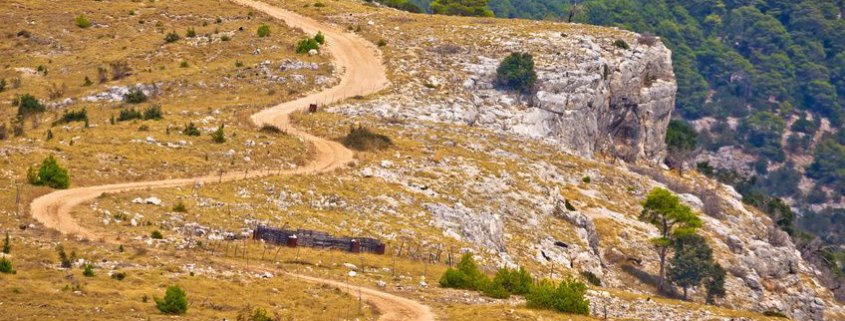
There has been evidence found on the island to suggest that the history of Brac stretches as far back as the Bronze and Iron Ages. The Illyrians at that time named the island Brentos (meaning stag) whilst the Greeks – though never in control of the island – later gave it the name Elaphusa.
Like much of Dalmatia, the island of Brac also subsequently became part of the Roman Empire although little evidence of the Empire can be seen today.

Croats arrive on Brac
The Croatian people found their way to Brac in the 7th century, with the island becoming part of the Croatian Kingdom of King Tomislav in the 10th century In the centuries following this, Brac flipped between rule by the Venetian Empire and the Croatian Kings as well as the Croatian-Hungarian Empire. Bosnian King Stjepan Tvrtko I took control of much of the Dalmatian region – including Brac – in 1390, although his death the following year then saw Sigismung, King of Hungary, take control.
In 1420, the island finally became part of the Venetian Empire for a considerable amount of time, with the island governed by a Count nominated by the Venetian Senate.
Austro-Hungarian Rule
With the fall of the Empire in 1797, Brac fell to the Austrians for an initial brief period, interrupted by periods of rule by the French (in 1805), the Russians (end of 1806) and the French again (1807-1814). Brac once again became part of the Austrian Empire in 1814 after the fall of Napoleon.
The island’s spell under Austrian rule saw economic and cultural improvements, with Supetar established as the main administrative centre of the island in 1827. Brac’s population peaked at the beginning of the 20th century, following which was a period of significant emigration (largely due to a vine lice epidemic affecting much of the islands grape crops, causing many winemakers to suffer) with many leaving for Latin America.
20th Century History of Brac
After becoming part of the Kingdom of Serbs, Croats and Slovenes after World War I, Brac was occupied by Italy (in 1941) and then by German forces in 1944, although their defeat in July of that year meant the island was freed from their control.
After World War II, as with the rest of Croatia, Brac once again became part of Yugoslavia until Croatia declared its independence in 1991.
